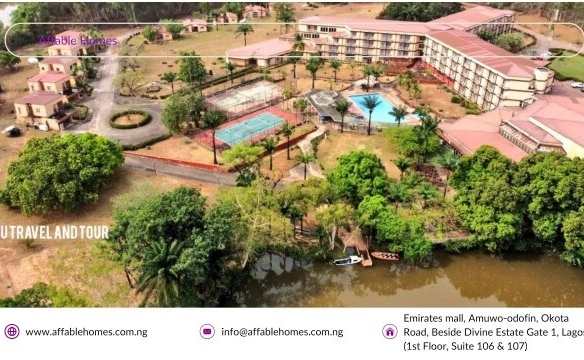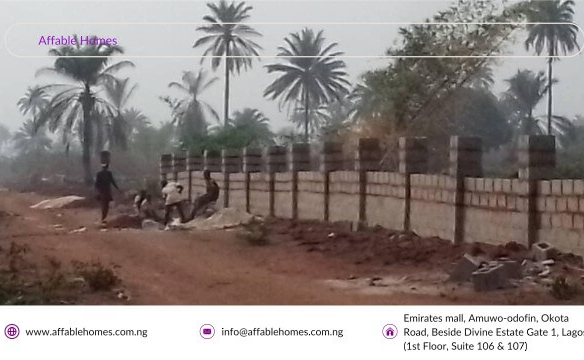Port-Harcourt isn’t just an oil city; it’s a booming real estate goldmine. As the commercial heartbeat of Rivers State, Port-Harcourt has turned into one of Nigeria’s most attractive places to buy land. New estates are springing up, more people are relocating, and land values are rising fast.
But with this real estate boom comes a darker side: land scams, forged documents, and shady agents are everywhere. For every land offer that’s legitimate, five others are waiting to exploit hopeful buyers who don’t know better.
Before we discuss the common mistakes people make in Port-Harcourt when they want to buy land, let’s break down some basic terms. If you’re new to real estate, this will help you follow the rest of the article with confidence and spot red flags faster. Don’t worry, we’ll explain everything in simple terms.
- C of O (Certificate of Occupancy): This is the highest proof of land ownership issued by the government. It confirms that you legally own the land.
- Survey Plan: A map showing the exact boundaries and location of the land, based on measurements taken by a licensed surveyor.
- Deed of Assignment: A legal document that transfers land ownership from the seller to the buyer.
- Omonile: Traditional landowners or local community representatives who often demand settlement fees before allowing development.
- Government Acquisition Zone: Land that the government has reserved for public projects. Buying here could result in losing your property without compensation.
If you’re planning to invest in land here, it’s not enough to have the money; you need the knowledge. Before you transfer even a naira or sign a document, you need to know what to check, whom to verify, and what to avoid. This guide will walk you through the hidden traps and show you how to protect your investment, your money, and your peace of mind.
1. Don’t Trust That “C of O” at Face Value
A Certificate of Occupancy (C of O) is the highest title document for land, but scammers know that, too. Fake or duplicated C of Os are often used to lure buyers. Don’t assume that seeing a C of O means the land is legit.
How to verify:
- Visit the Rivers State Ministry of Lands in person.
- Submit the document for verification (some states allow online verification on official portals).
- Ensure the name on the C of O matches the seller’s name.
2. Always Ask for the Survey Plan & Deed of Assignment
These are the basic legal documents every genuine land deal should come with. A survey plan shows the exact location and size of the land. The deed of assignment shows the chain of ownership. If the seller can’t provide these, you’re probably not buying real property; you’re buying a headache.
How to verify:
- Take the survey plan to a licensed surveyor to confirm its authenticity.
- Cross-check the deed of assignment with the Ministry of Lands to ensure it was properly registered.
3. Go with a Registered Surveyor for Land Inspection
Many buyers inspect land visually, but that’s not enough. A seller can show you one plot and sell you another. A licensed surveyor can pick the coordinates on-site and compare them to the official land layout to confirm if what you’re being shown is real or repositioned.
How to do this:
- Hire a registered surveyor with knowledge of Port-Harcourt layouts.
- They’ll use a GPS device to track the plot coordinates and compare them with official maps.
Also Read:
- Where to Invest in Imo: 3 Best Places to Buy Land Near Owerri
- How Much is a Plot of Land in Ogbaku, Owerri?
- How to Retire Young and Rich with Real Estate Investing in Nigeria
4. Family Land? Run It by a Lawyer First
In PHC, family land is common and often problematic. It may belong to a community or be passed down without proper documentation. To avoid future disputes, ensure a lawyer reviews the transaction and that all necessary family heads or signatories are involved. Many land buyers have lost their plots years later due to unresolved family disagreements.
How to protect yourself:
- Ask for a family resolution document signed by all key stakeholders.
- Engage a real estate lawyer who can cross-check the land’s background.

5. Check for Government Acquisition Zones
Some land is technically owned by the government and earmarked for future public projects. If you unknowingly buy land in these zones, your structure could be demolished without compensation.
How to check:
- Visit the Ministry of Urban Development or the Town Planning Authority.
- Provide your survey plan and request a land status check.
6. Use Town Planning Office Confirmation
The land may be free from government acquisition, but that doesn’t mean you can build on it. Certain areas are zoned for agricultural or industrial use.
How to confirm:
- Submit the coordinates to the Town Planning Office.
- Request a zoning confirmation letter stating the permitted use of the land.
7. Price That’s Too Good to Be True? Probably Is.
Scammers prey on urgency and greed. If someone is offering you a plot at half the market price, ask why. Real land doesn’t lose value overnight.
What to do:
- Compare the price with other verified listings in that location.
- Ask the seller for a detailed explanation of the low price and verify it with a neutral agent or lawyer.
8. Hidden Omonile Wahala: What They Won’t Tell You
Omonile (traditional landowners) can be a serious challenge, especially in the outskirts or developing areas. Even if you buy legally, they may show up demanding settlement fees for building, roofing, or even fencing.
How to avoid issues:
- Ask the seller for a signed indemnity letter stating Omonile settlement has been paid.
- Visit the land with a local representative to confirm there are no unresolved disputes.
Also Read:
- How Land Scams Work in Awka: A Guide to Avoiding Fraud
- Different Land Use Plans Available in Lagos: A Complete Guide
- How Omonile Land Scams Work in Epe [Uncovered Secrets]
Don’t Rush — Verify Everything
Yes, the land market in Port-Harcourt is booming. There are great opportunities to invest and secure your future. But along with the growth comes danger, land scams, forged documents, illegal sales, and community disputes are more common than you might think.
That’s why you must never rush into a land deal. Excitement is good, but when it comes to land, excitement without verification can cost you millions or worse, peace of mind.
Here’s what you must do before you make any payment:
- Proper documentation
- Legal review
- Surveyor confirmation
- Government verification
If this feels overwhelming, you’re not alone. That’s why it’s smart to work with a trusted real estate company like Affable Homes Ltd in Port-Harcourt before you buy land. They can guide you step-by-step, verify documents, and help you avoid common traps.
Peace of mind is better than rushing into regret.
To explore any of our real estate investment packages like land banking, retirement plan, kids education investment plan, trade apprenticeship plan or if you want to purchase some plots where you will have residential or commercial buildings, send an email to us at info@affablehomes.com.ng or call +2349134056630.
Click here to fill the form and we will reach out to you immediately.




